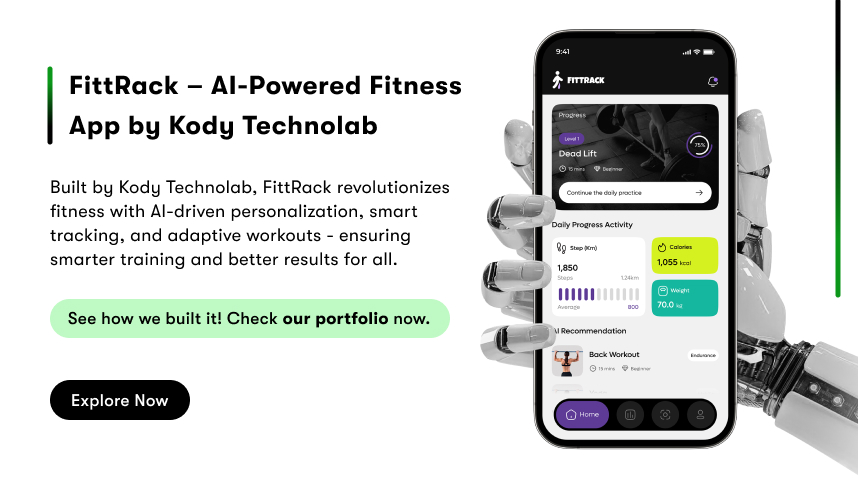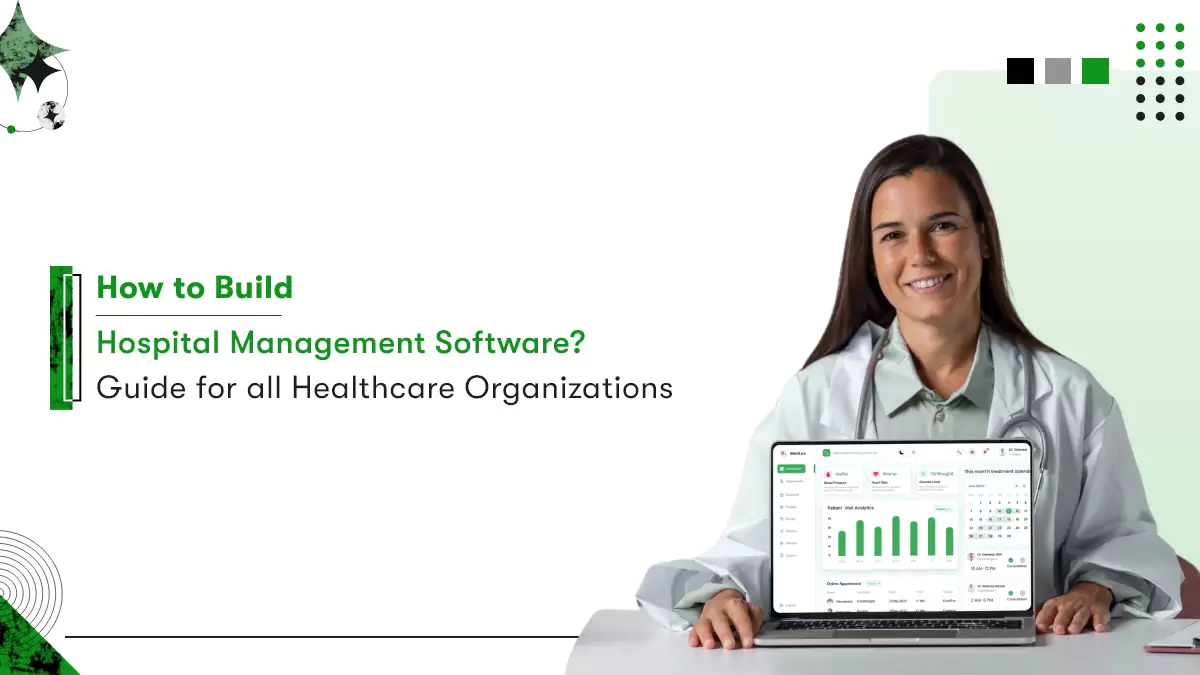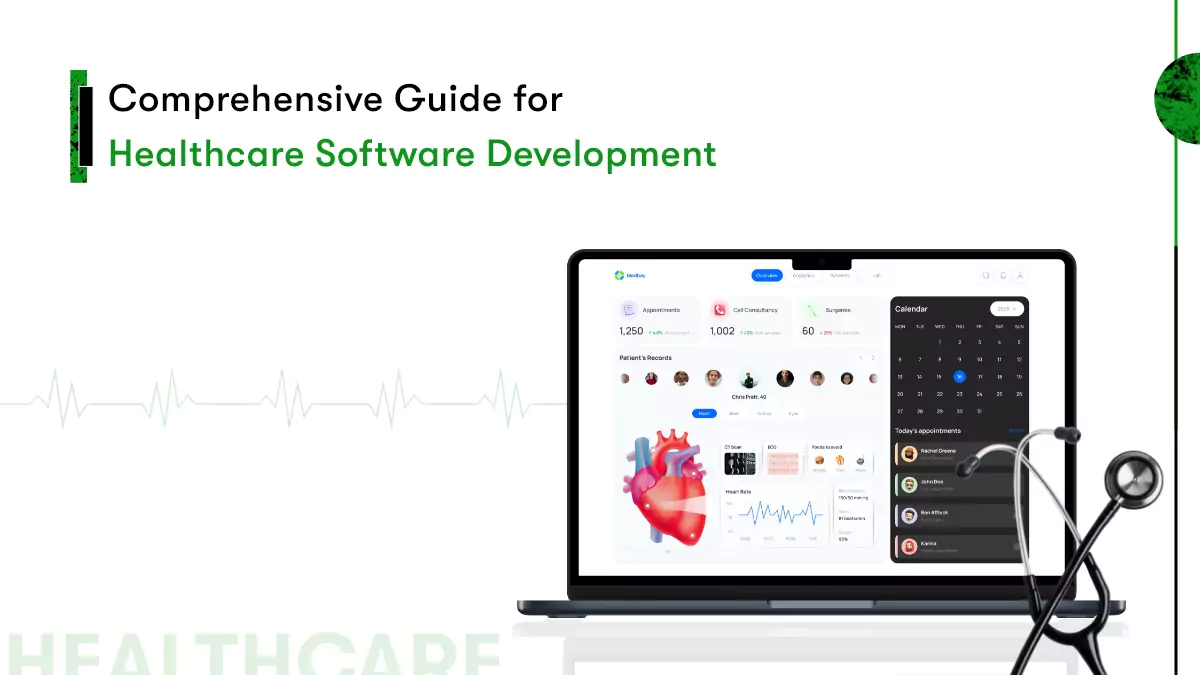In the rapidly evolving world of healthcare, starting a health tech startup is both a promising and challenging endeavor. Marked by a high bar of entry due to its impact on human lives, the industry has seen a significant rise in the value of healthcare startups.
The value of European health tech startups was 41 billion U.S. dollars in 2021, while 41,550 health tech startups in the USA were recorded till June 2023!
The persistent demand for innovative solutions to health crises like COVID-19, cancer, and diabetes has been a significant factor in fueling this growth. However, breaking into this highly regulated and competitive field requires more than just a groundbreaking healthcare app idea.
You need a deep understanding of the healthcare industry’s stringent standards, technology trends, and a strategic approach to overcoming common pitfalls.
Hence, we have prepared this guide to navigate you through the complexities of starting a healthcare startup, highlighting key steps and common mistakes to avoid. With the right knowledge and approach, your startup can not only enter but also thrive in the healthcare industry.
So, let’s get started with the most basic question first.
Why do healthcare startups fail? What to Consider before starting a startup in healthcare?
The rising value of the health tech startup market is sure enough to compel entrepreneurs to get into the arena. But even with unique ideas, startups are vulnerable to collapse for many reasons. Approximately 90% of startups fail, about 10% fail in their first year, and around half don’t make it past five years.
And when it comes to health tech startups, there is no room for any missteps. That’s why it is important to understand what reasons can lead your healthcare tech startup to its downfall. After studying why many healthcare startups fail, we found the aspects below that require your attention.

Regulatory Roadblocks
Healthcare is one of the most regulated industries. However, many startups stumble because they underestimate the complexity and resources required to comply with healthcare regulations.
For example, Theranos, a once-promising blood-testing startup valued at $10 billion in 2015, failed partly due to non-compliance with healthcare regulations. Theranos case proved that no matter how revolutionary your health tech idea could be, overlooking necessary regulations can hunt you down. And then, there can be undesirable consequences.
What to consider:
To avoid repeating Theranos’s mistake, research and understand the regulatory landscape before laying the foundation of your healthcare tech startup. You must know that regulations might differ from region to region. For example, HIPAA is a mandatory compliance in the US healthcare industry for handling patient health information.
Exclusive guide on HIPAA-compliant healthcare software development.
Market Misunderstanding
No matter how innovative your healthcare tech startup is, what good of it if no one benefits from it? Often, startups overlook the market needs and focus only on developing unique products. Result? They end up with a poor market fit solution!
HealthSpot, an Ohio-based provider of telehealth kiosks, is an example of a startup that misjudged market needs. They built high-tech kiosks for virtual doctor visits but failed to align their product with their target users’ actual demands and behaviors, leading to their closure.
What to consider:
You might need to change your perspective from building what you want to build to what’s actually required. Understanding the market conditions, trends, and demand will enable you to create the perfect market fit and avoid discrepancies.
User Experience Pitfalls
Using cutting-edge technology is good, but it should not make the solution challenging for the target audience. That is where creating an intuitive user experience comes in. Because a confusing interface can lead to low adoption rates, among patients and healthcare providers.
Though HealthSpot had innovative kiosks, they couldn’t gain widespread adoption due to poor user-friendliness. That demonstrates even the most advanced technology can fail if it’s not accessible and easy to use.
What to consider:
To ensure your customers easily embrace the healthcare tech solution you build under your startup, involve UI/UX experts from the beginning. Furthermore, testing your product with real users is the most effective approach to designing a solution that is easy to navigate for both patients and healthcare providers.
Scaling Struggles
Some healthcare startups build solutions without considering the room for scalability, while some fail to grasp the opportunity to scale. Not being able to grow your business at the right time may lead your healthcare startup business to downfalls.
For example, Seattle-based Direct Primary Care startup Qliance was led to closure in 2017 because of its scalability issues. Its founder and CEO, Erika Bliss, stated in a report, “Qliance closed after it was unable to secure long-term funding that would have brought together expanded services such as virtual care, patient management, and urgent care.”
What to consider:
If you don’t want what happens to Qliance to happen to your health tech startup, plan for scalability from the outset. Brainstorm with healthcare experts and create a flexible business model that adapts and grows with market demands.
Development Team Dynamics
Thinking they are at an early stage and don’t require experts, startups often hire people who help them save budget. However, if a rookie development team creates a faulty product, startups need to spend more than they save. In the worst case, the product might collapse before it even reaches its target audience.
Basically, having a competent and reliable team with a balanced mix of technical, healthcare, and business expertise is vital for health tech startups. Because you cannot afford to create a solution that is technically sound but painful to use for your target audience.
What to consider:
Building the right team is non-negotiable. Spending on skilled professionals is an investment that can reap a high ROI by navigating the complexities of healthcare tech. So, ensure you prioritize hiring developers with suitable skill sets.

Top Niches to Launch Your Healthcare Startup
The healthcare industry is as wide as an ocean. It can get overwhelming to find a shore to start with. That’s why you must figure out what bucket your healthcare startup idea will fall in. So, let’s explore niches and top healthcare startups from each.

Genomics
Genomics is at the forefront of personalized medicine, which includes studying the structure, function, mapping, and editing of genomes (an organism’s complete DNA). A healthcare startup focused on this niche can help people manage genetic diseases, predicting the risk of developing the disease.
Healthcare startup examples:
- 23andMe: a health tech app that offers insights into genetics, allowing users to explore and understand their genes with complete privacy.
- GenomiQa: Specializes in DNA sequencing for cancer detection and treatment.
Patient Care
The patient care niche is all about enhancing the patient experience through innovative solutions, including telemedicine, elderly patient care, and personalized care plans.
Healthcare startup examples:
- Parsley Health: Provides holistic, personalized healthcare.
- PatientPop: Offers a platform for managing patient experiences and streamlining practice growth.

Fitness Technology
It’s high time to start a health tech business in the Fitness technology niche, as wearable technology and fitness devices have taken the industry by storm.
Healthcare startup examples:
- Peloton: Known for its interactive fitness equipment and online classes.
- Fitbit: who doesn’t know this pioneer in wearable fitness technology?
Mental Health
With a growing focus on mental well-being, in this sector, you can offer digital solutions for therapy and mental health support.
Healthcare Startup Examples:
- Talkspace: A counseling and therapy app that connects users with therapists online.
- Moodpath: An app for tracking and improving mental health.
Medical Insurance
Combining finance and healthcare, this niche allows you to simplify the complex world of health insurance by creating a healthcare insurance app.
Healthcare Startup Examples:
- Aetna: Offers straightforward healthcare insurance plans for individuals, employers, and more.
- Oscar Health: Known for user-friendly health insurance services.
These are some of the healthcare technology niches you can tap into by developing software. If you wish to explore more opportunities, feel free to take healthcare IT consulting.
So, it’s time we dive into the step-wise guide to launch your healthcare startup.
Steps to build your startup business in healthcare
With the healthcare industry at a pivotal point of transformation, thanks to technological advancements, there’s never been a better time to innovate. However, the intersection of healthcare and technology is as much about solving existing problems as it’s about anticipating the needs of tomorrow.
Hence, proceeding with establishing your healthcare startup step-by-step is important, ensuring you’re on the right track. So, let’s dive in with some straightforward talk and actionable advice.

Step 1: Brainstorm over your Healthcare startup ideas
Kicking off a healthcare startup begins with that lightbulb moment. But how do you make sure your idea isn’t just a fleeting spark that quickly fades away? Well, it all boils down to the concept. A robust business idea becomes the bedrock of success, guiding you like a compass in the vast healthcare universe. It’s the factor that sets the pioneers apart from those who barely leave a mark.
So, what makes an idea stand out in the realm of healthcare technology? First and foremost, it should address a real need, provide a clear solution, and, if possible, align with your passion. After all, passion is the driving force behind persistence. Let’s take a look at a few health tech business ideas currently making waves:
- Telemedicine Platforms: Bridging healthcare gaps in remote areas.
- Wearable Health Tech: Keeping tabs on health in real-time.
- AI-driven Diagnostic Tools: Swift predictions and diagnoses of diseases.
- Mental Health Apps: Extending support and therapy through digital means.
- Personalized Medicine: Tailoring treatments based on genetic insights.
These concepts tap into the rising demand for healthcare solutions that are not just accessible but also personalized and efficient. If you have an idea that could transform patient care or streamline healthcare operations, now is the moment to delve deeper and uncover its potential.
Step 2: Study the market
Why is market research the cornerstone of launching a successful healthcare startup? Well, imagine developing an AI skincare app without knowing your competition or the latest trends in dermatology tech. You could create something already out there or, worse, something no one needs.
Studying the market helps you understand the demand, identify your competitors, and spot opportunities for innovation. For example, knowing which platforms healthcare professionals prefer in healthcare software development can guide your tech stack decisions. And based on the tech stack, you can decide whether to hire Flutter developers, Java developers, or Python developers.
But how should you go about this? Start with a deep dive into your specific niche—be it healthcare apps or telehealth platforms. Look at industry reports, competitor offerings, and customer reviews. Moreover, you can engage with potential users through surveys or interviews to gain invaluable insights.
Step 3: Build your Team
Alright, let’s talk about putting together your dream team. You’ve got a brilliant idea for a healthcare startup, maybe something groundbreaking in healthcare software development or an AI skincare app. But who’s going to help you bring this vision to life?
Here’s the deal:
- Skills Mix: You need a mix of tech gurus, healthcare buffs, and business minds. Think about the gaps in your own skills and start there.
- Engagement Models: Not everyone has to be full-time. Outsourcing a development team or hiring developers to extend your existing team can fill specialized roles, especially in the early days.
- Prioritize Culture: Skills are crucial, but so is fit. Your team should share your vision and enthusiasm.
Building a development team is more like assembling a band. You need different instruments playing in harmony to create a hit. So, take your time, choose wisely, and let’s make some noise in the healthcare world together.
Step 4: Draft a business plan
Let’s get down to the nitty-gritty of your healthcare tech startup game plan. Crafting that business blueprint is like setting the course for a successful mission. Without it, you might as well be navigating blind in a vast ocean of uncertainty. So, here’s what you should cover in your business plan:
Breaking Down Costs: Start mapping out every dime – from the essential tech infrastructure for your healthcare app to the strategic budget for integrating healthcare tech trends like Predictive Analytics and NLP.
Knowing Your Crowd: Pinpointing your product’s users and their pain points is key. Dive deep into understanding your audience – whether it’s the dynamic young professionals, the multitasking parents, or the health-conscious fitness enthusiasts. This is how you can tailor your strategy to their needs.
Standing Out: What makes your healthcare tech startup unique? Whether it’s an avant-garde feature in your healthcare software or an AI application that breaks new ground, highlight what sets you apart from the rest.
Features Galore: Systematically outline the functionalities of your product. Keep it streamlined, focusing on the tangible benefits that resonate with your end users in the healthcare tech landscape.
Revenue Models: There are many ways you can monetize your health tech startup, but you need to choose the optimum ones. From strategic subscriptions, targeted advertisements, or premium features, selecting the right path to profitability is where the rubber meets the road.
Step 5: Outline the development
For healthcare startup founders, the development phase is where your idea starts to pulse with life. By choosing a versatile tech stack and adopting an iterative development approach, you can create something that meets current needs and adapts and evolves over time.
Here’s how you can approach this crucial phase with the precision of a healthcare technology expert:
- Tech Stack Decisions: Imagine you’re crafting a toolkit for a mission. Every tool (or technology) needs to serve a specific purpose. For a healthcare app that aims to reach as many users as possible, Flutter shines brightly. It’s like a Swiss Army knife, enabling you to efficiently create apps for both Android and iOS with a single codebase, ensuring consistency and saving precious time.
- Selecting the Right Technologies: Your project’s nature dictates the tech you need. Building an NLP healthcare solution or AI-driven app? You’ll dive into the realms of artificial intelligence and machine learning. The key is to align your technology choices with the unique demands of your project, ensuring they complement your vision and your team’s skill set.
The Development Blueprint:
- Prototype Creation: A prototype is your idea’s first incarnation, bringing your vision to a form you can see, touch, and improve.
- Developing an MVP (Minimum Viable Product): Think of the MVP as your first open house. It’s your solution’s simplest yet functional version designed to gather real user feedback.
- Iterative Development: Use the insights gathered from your MVP to refine and enhance your app with your development team. It’s a cycle of learning, improving, and growing.
Key Considerations:
- Data Security and User Privacy: In the healthcare domain, data security is a foundational element that ensures your app complies with regulations like HIPAA.
- Scalability: Plan for the future. Your architecture should be robust enough to grow with your user base without faltering.
How we, Kody Technolab Ltd help Healthcare startups get off the ground!
As we wrap up this comprehensive guide on launching a healthcare startup, you might be wondering how to translate this blueprint into reality. That’s where Kody Technolab Ltd steps in.
We’re passionate about empowering healthcare startups to bring their innovative visions to life. With our expertise in healthcare technology solutions and software development, we offer tailored tech solutions, ensure regulatory compliance, and adopt an agile development process designed for scalability.
Kody offers a solution and cost-effective engagement models to hire experienced developers without breaking the bank. So, share your rough health tech business idea, and let us perfectly shape it!












 Contact Information
Contact Information